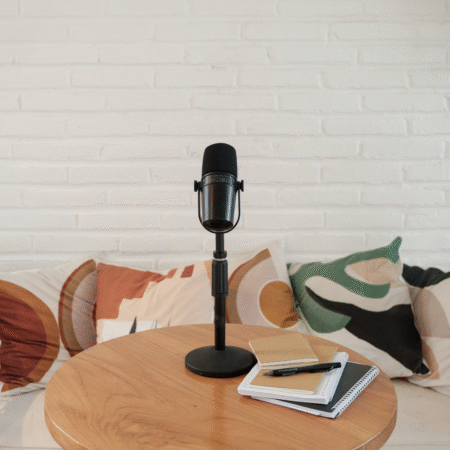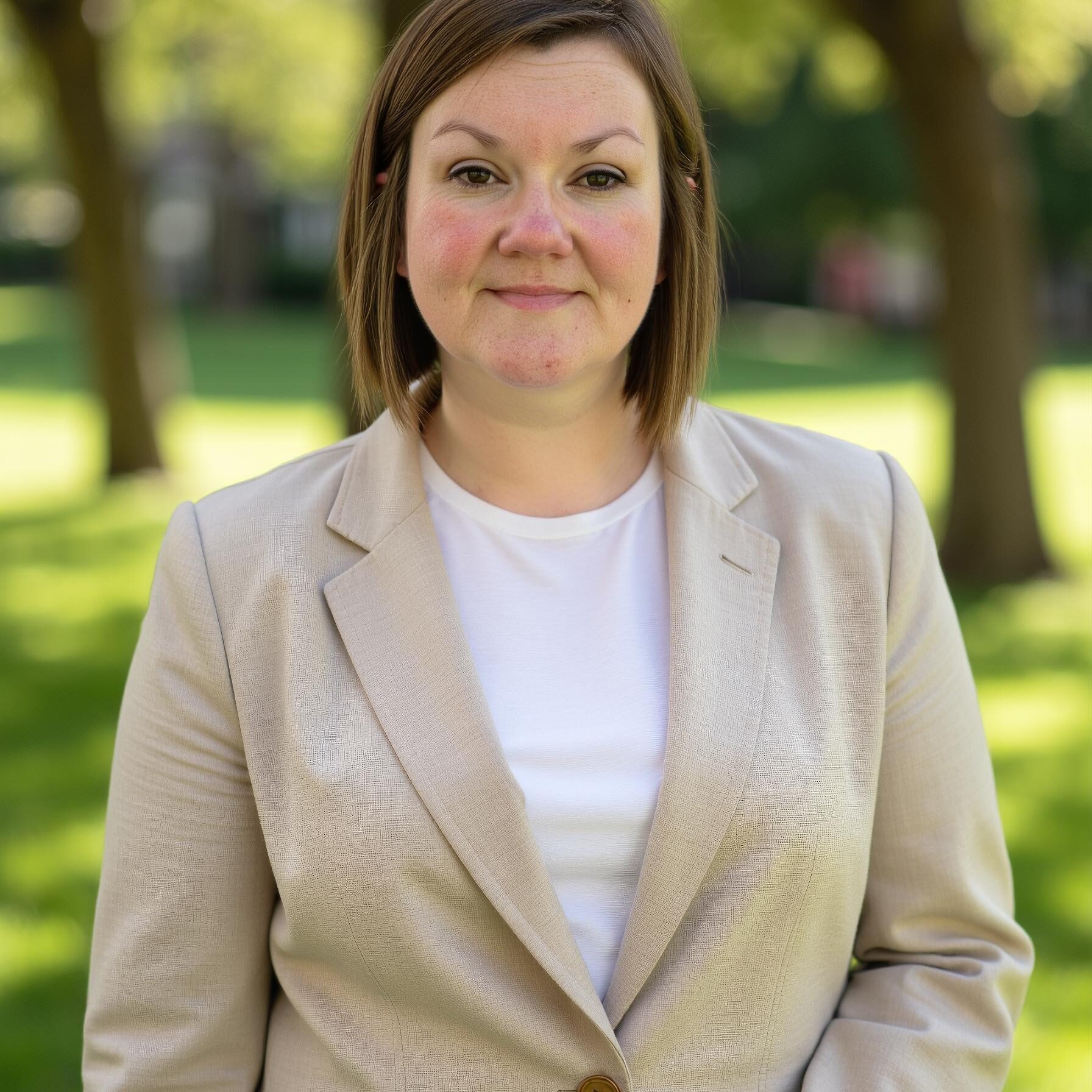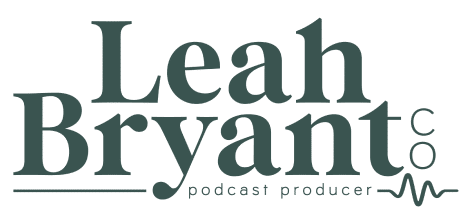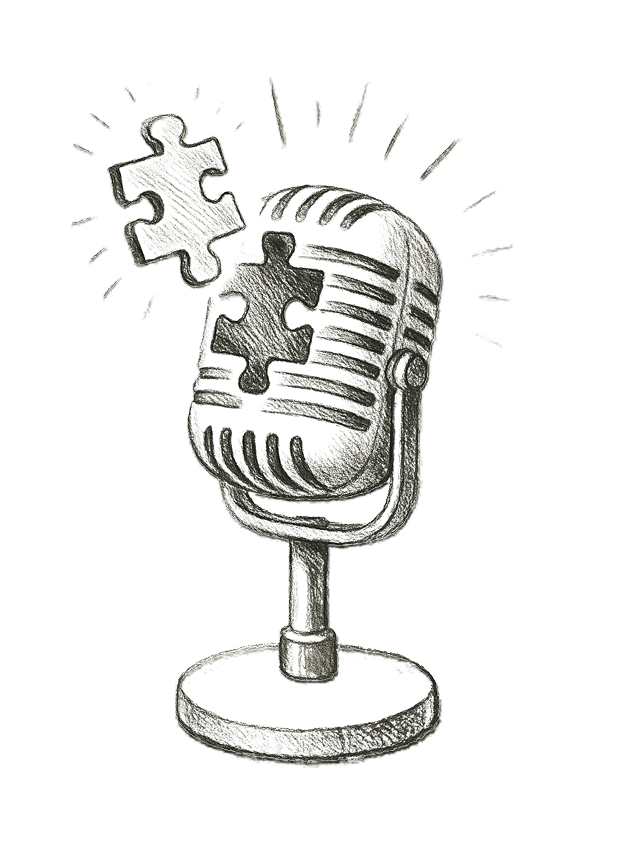Do You Really Need Fancy Podcast Gear to Launch?
The Truth About Podcast Equipment for New Podcasters
Leah Bryant [00:00:04]:
Welcome to Podcasting Problem Solver! I’m Leah Bryant — podcast producer, strategist, and founder of Leah Bryant Co. We help entrepreneurs launch and grow podcasts that actually move the needle without the tech headaches.
Today’s question: Do I really need fancy gear to start a podcast?
Short answer? Nope. You absolutely do not.
But… before you add that Blue Yeti to your Amazon cart, let’s break this down.
Why We Obsess Over Podcast Gear
When “Research” Becomes Procrastination in Disguise
Leah Bryant [00:00:55]:
People obsess over gear — and honestly, I get it. It’s the first visible choice you make. But…
Obsessing over gear is just fear in a tech lanyard.
Next thing you know?
You’ve got 17 browser tabs open, a $600 Amazon cart, and zero episodes recorded. Sound familiar?
Execution, Not Perfection: The “E” in SEAMless
Let’s Make Tech Simple and Start Where You Are
Leah Bryant [00:01:53]:
If you’re saying:
- “I can’t launch until I figure out my setup,”
- “I want to sound professional right away,”
What you really might be saying is:
“I don’t want to sound bad or embarrass myself.”
And that’s valid. But fear doesn’t drive this bus.
My First Mic? A Blue Yeti (And I Regret It)
Brand Aesthetic vs. Audio Reality
Leah Bryant [00:02:36]:
Yep, I did it. I bought the cute Blue Yeti because it matched my brand colors. Spoiler alert: It sounded… awful.
Why? Because it’s a condenser mic — super sensitive and not suited for echoey home offices with a lawnmower soundtrack.
It was aesthetic, not effective.
And that’s the difference between content that looks good and content that connects.
The Best Podcast Gear for Every Budget
Podcasting on a $0 Budget
Leah Bryant [00:03:42]:
If you’ve got wired earbuds and a quiet space (hello, blanket fort), you’re good to go.
Just record in a soft space like a closet or carpeted room.
Use free tools like Riverside for recording and editing.
Best Podcast Mic Under $100
Leah Bryant [00:04:19]:
Got a little wiggle room in your budget? Awesome.
Try:
These USB dynamic mics plug right into your laptop. Clean audio. Easy setup. No stress.
This is my go-to setup for most new podcasters.
Podcasting Setup for $300+
Leah Bryant [00:04:58]:
If you’re ready to invest, try the Shure MV7 — it’s what I use!
Pair it with closed-back headphones for optimal control.
Just remember:
Gear is meant to support your message, not gatekeep it.
Your Podcast Room Matters More Than Your Mic
Why Space > Spend When It Comes to Sound Quality
Leah Bryant [00:05:43]:
Let’s clear this up:
You can drop $400 on a mic and still sound like you’re recording in a bathroom stall.
Here’s how to upgrade your recording space instead of your cart:
- Record in small, soft spaces (closets, bedrooms with rugs/curtains)
- Avoid open kitchens, tiled bathrooms, and glass-heavy rooms
- Add Amazon sound panels for an easy acoustic boost
Part of the Execution Phase in SEAMless
Make Your Tech Setup Fit Your Real Life
Leah Bryant [00:06:49]:
Even I don’t record in the perfect room — I’ve got windows, hardwood, and mirrored closet doors. But it works because I’ve optimized the space and chosen the right mic.
3 Podcast Gear Myths Busted
Myth #1: Expensive Mics Make You Sound Professional
Truth: Mic placement and your environment matter more.
Myth #2: If I Don’t Sound Like NPR, I Shouldn’t Launch
Truth: You don’t need to sound like Ira Glass. You need to sound like you.
Myth #3: Pro Gear = Instant Credibility
Truth: Your audience stays for value and consistency, not the gear you used.
Client Story: Perfection Doesn’t Book Clients — Progress Does
Leah Bryant [00:08:34]:
My client Sarah delayed launching for six months trying to build the perfect studio.
She bought 3 mics, had a meltdown in Best Buy… then finally recorded a simple trailer.
And guess what?
She booked 2 clients from that trailer.
Perfection didn’t get her results. Progress did.
Gear Isn’t the Real Problem — Fear Is
Stop Researching. Start Recording.
Leah Bryant [00:09:05]:
When you’re stuck in analysis paralysis, it feels like you’re moving — but you’re not.
Behind that is fear:
- Of sounding awkward
- Of being judged
- Of not doing it “right”
Your podcast doesn’t need to be perfect. It just needs to be present.
What You Actually Need to Start a Podcast
Leah Bryant [00:09:37]:
You don’t need fancy gear.
You need:
- A message that matters
- A mic that fits your space
- And the guts to hit record
Start now. Start messy. Just start.
Want More Podcast Tips?
Submit Your Questions + Join the Newsletter
Leah Bryant [00:10:03]:
Got a podcasting problem? Submit it via the episode description — anonymous or named — and I might answer it on the show.
Want more insights, recs, and honest strategy?
Join the free newsletter — it’s fluff-free and fun.
Final Reminder: You Don’t Need Fancy Gear
Leah Bryant [00:10:55]:
You need a plan.
You need a mic that fits your space.
And you need the courage to hit record.
Catch you next time on Podcasting Problem Solver.





